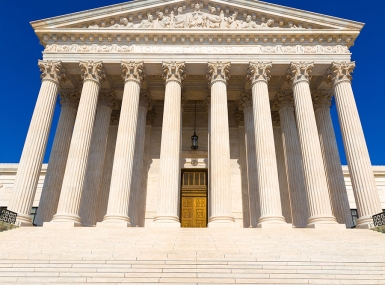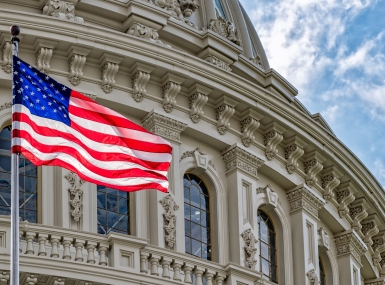Ryan launches new bipartisan Task Force on Intergovernmental Affairs
Upcoming Events
Related News
Bipartisan Task Force on Intergovernmental Affairs will study effects of federal rules on state and local governments
Speaker Paul Ryan (R-Wis.) and Democratic Leader Nancy Pelosi (D-Calif.) have announced the creation of the bipartisan Task Force on Intergovernmental Affairs.
“The Task Force on Intergovernmental Affairs will study ways to restore the proper balance of power between the federal government and states, tribal and local governments, and eliminate unnecessary regulatory burdens facing communities across the nation,” Ryan said.
The seven organizations that represent state and local gov ernments at the federal level (known as the Big 7) – the National Governors Association, National Association of Counties, National League of Cities, U.S. Conference of Mayors, International City/County Management Association, National Conference of State Legislatures and the Council of State Governments – will serve as an advisory council.
Six Republicans and six Democrats will serve on the task force chaired by Rep. Rob Bishop (R-Utah). Members are: Rep. Gary Palmer (R-Ala.); Rep. Luke Messer (R-Ind.); Rep. Mark Walker (R-N.C.); Rep. John Culberson (R-Texas); Rep. Lee Zeldin (R-N.Y.) , Rep. Jenniffer González-Colón (R-P.R.); Rep. Richard Neal (D-Mass.); Rep. Raúl Grijalva (D-Ariz.); Rep. Gerry Connolly (D-Va.); Rep. Norma Torres (D-Calif.); Rep. Anthony Brown (D-Md.); and Rep. Charlie Crist (D-Fla.). The task force is charged with:
- Partnering with states, tribes and local governments to balance the interests of governments
- Providing a forum for states, cities, and counties to showcase their innovation and creativity in solving public policy problems
- Examining the effects of federal rules and regulations on state and local partners.
- Developing proposals to partner with and empower states, tribes, local governments, private institutions, families and individuals; and
- Examining the extent to which the burdens shared among states, tribes and local governments may be re-allocated to improve the quality of life in all communities.
The announcement came on the heels of Infrastructure Week, during which state and local leaders met with congressional lawmakers to highlight the importance of a strong federal-state-local partnership in addressing the nation’s infrastructure needs.
Attachments
Related News

U.S. Supreme Court issues unanimous decision in landmark National Environmental Policy Act case
On May 29, the U.S. Supreme Court issued a unanimous decision in Seven County Infrastructure Coalition v. Eagle County, Colorado that will reshape requirements for National Environmental Policy Act (NEPA) environment impact statements.

U.S. House passes reconciliation bill: What it means for counties
Counties should continue to advocate for county priorities to be included in the final budget reconciliation bill.

What Counties Need to Know: ARPA reporting requirements for program income
On May 20, the U.S. Department of Treasury (Treasury) distributed a memo to counties that received American Rescue Plan Act (ARPA) State and Local Fiscal Recovery Fund (SLFRF) dollars who had program income or reported $0 obligated on their recent program & expenditure reports.